Face Tutorial For Anon!
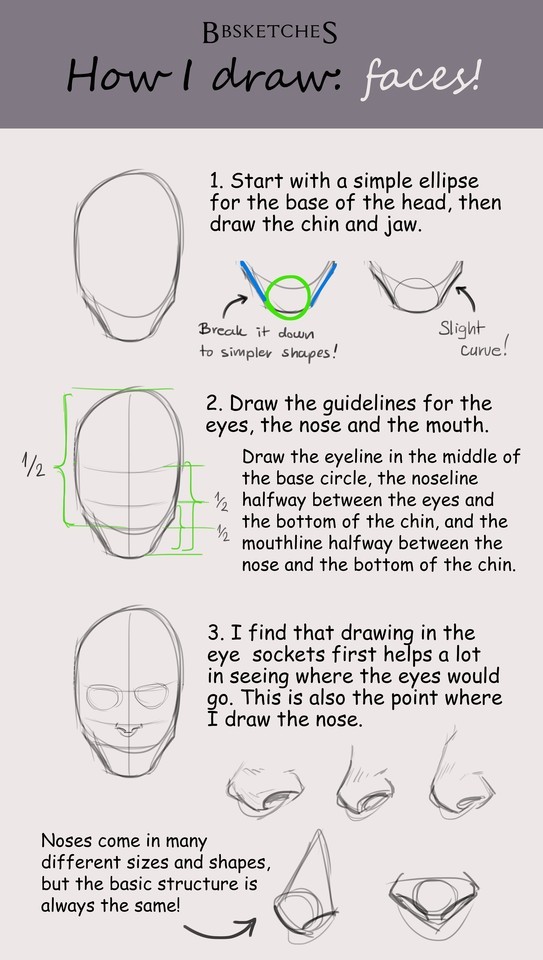

Face tutorial for Anon!
I wasn’t sure whether you meant heads or facial expressions, so here’s a very basic head tutorial! Of course not all faces are the same so proportions and the size of ears/eyes/noses etc. can vary! Feel free to explore and play with them to create unique and interesting characters! I hope this is somewhat helpful, and let me know if you’d like a tutorial on expressions as well!
More Posts from Nastysynth and Others
Hello!! This may be a weird question but I too am heavily interested in birds but unlike you, I cannot draw them as well. :,^( If it's not too much work (if it is just ignore this, i don't mind), do you know of any good references or sources to learn more about birds from facts to anatomy? I know this is a pretty wide range so again, I totally understand if you can't! I just thought it was worth an ask. Thank you so much!!
i don’t really have any specific reference places but here’s some things i do.
drawing birds is arguably one of the hardest animals because of their feathers. unlike fat and fur that folds to the body in a way that’s usually readable to whats underneath, feathers sort of create a ‘bubble’ around the body which makes a lot of body parts indistinguishable to where one ends and another begins. so its important to always think in terms of skeletal anatomy:

birds are dinosaurs and therefore reptiles. looking at birds this way, it’s a lot easier to see their evolution.

with that in mind, say we wanna draw this dude. owls are pretty tough because their outward appearances are so deceiving.

we’ve got a neutral pose, feathers are generously surrounding most of the body so its no sweat, we don’t really know whats going on. but we can hide it. but now we want to make him move and look cool. without really knowing whats going on we might get stuck on something like this:

its always kind of stiff and frustratingly unrealistic. mostly this is because we just don’t have enough knowledge of the skeletal structure to work with. eyeballing anatomy on our first drawing might get something like the left, more than anything people aren’t generous enough with leginess of birds:

owls do indeed have regular proportioned necks with the rest of their bodies. and their skulls are like that of any other stereotypical raptor under their mask of feathers (minus their freaky eye sockets and ears)) they can open their mouths wide just like a hawk or eagle can. it’s important to remember that birds with large wingspans do not magically lose their length when hidden. they are just conveniently folded in against their bodies.
knowing this we can try again. suddenly things seem to click in place more and have a believable-ness to them.

the rule of thumb for most birds is they have less body mass and more leg/neck than one thinks. they are lanky dinosaurs.


when we are looking at this:

we are seeing this:

with that rule, drawing birds becomes a lot less confusing. with practice you might just eyeball their feathered appearances but if not, going back to skeletal/muscle structure gives the base you need to draw convincing birds.

when it comes to specific body parts, the most challenging part for me personally have always been feet. birds with super twiggy feet are easier because one line per toe is easy to get away with. but when you get to birds with meatier feet, especially raptors, it gets difficult. my way of getting around this is to think of the actual ‘feet’ last. drawing each separate toe first gets confusing because you just find yourself trying to get them to each fit evenly together at the base of the foot. one always seems kind of skinnier or fatter than the others in my experiences, and by the time you correct it the gesture gets muddled and lost.

so i just skip that part until later, i draw talon first.

perhaps this is very unorthodox, but just like artists might square in the hands first on a human before working out the arms, i square in the talons to know where i want them before worrying how they go on exactly.

that way we have a clear gesture captured, and in my experience it is much more readable.
thats’ really all i can think of now in terms of my techniques, i hope this helps :V

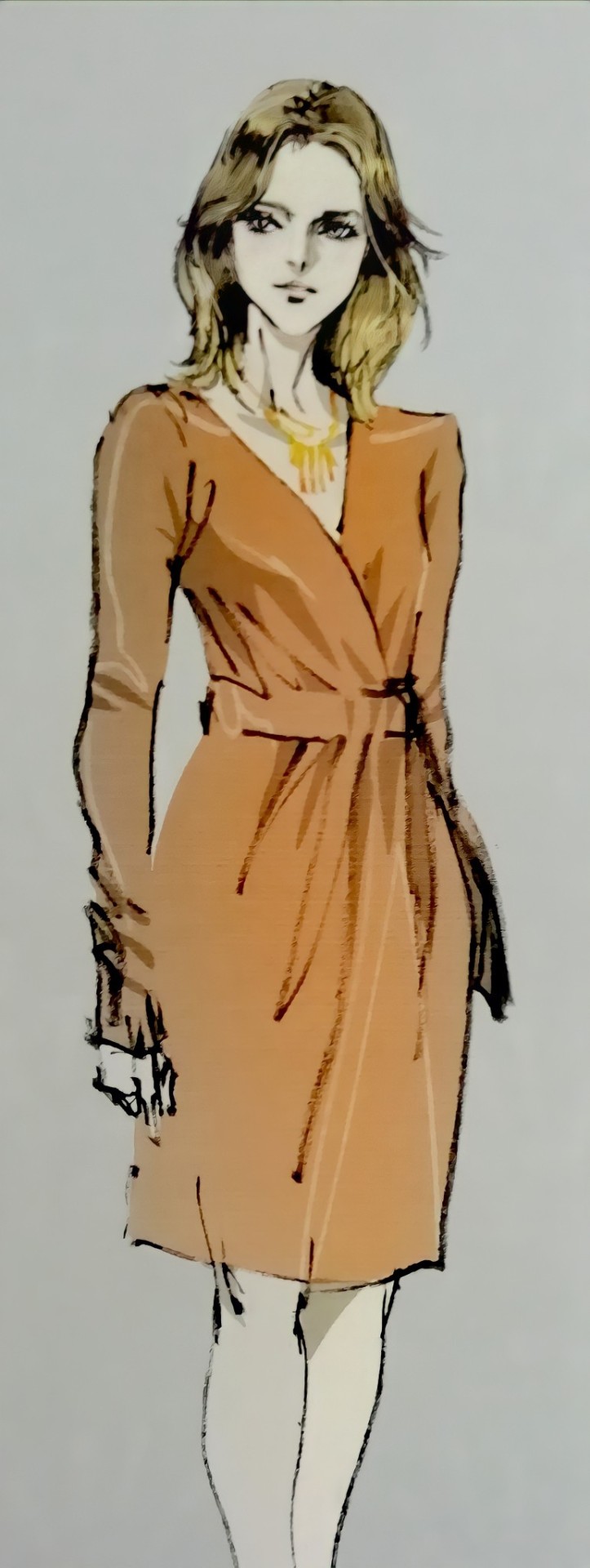


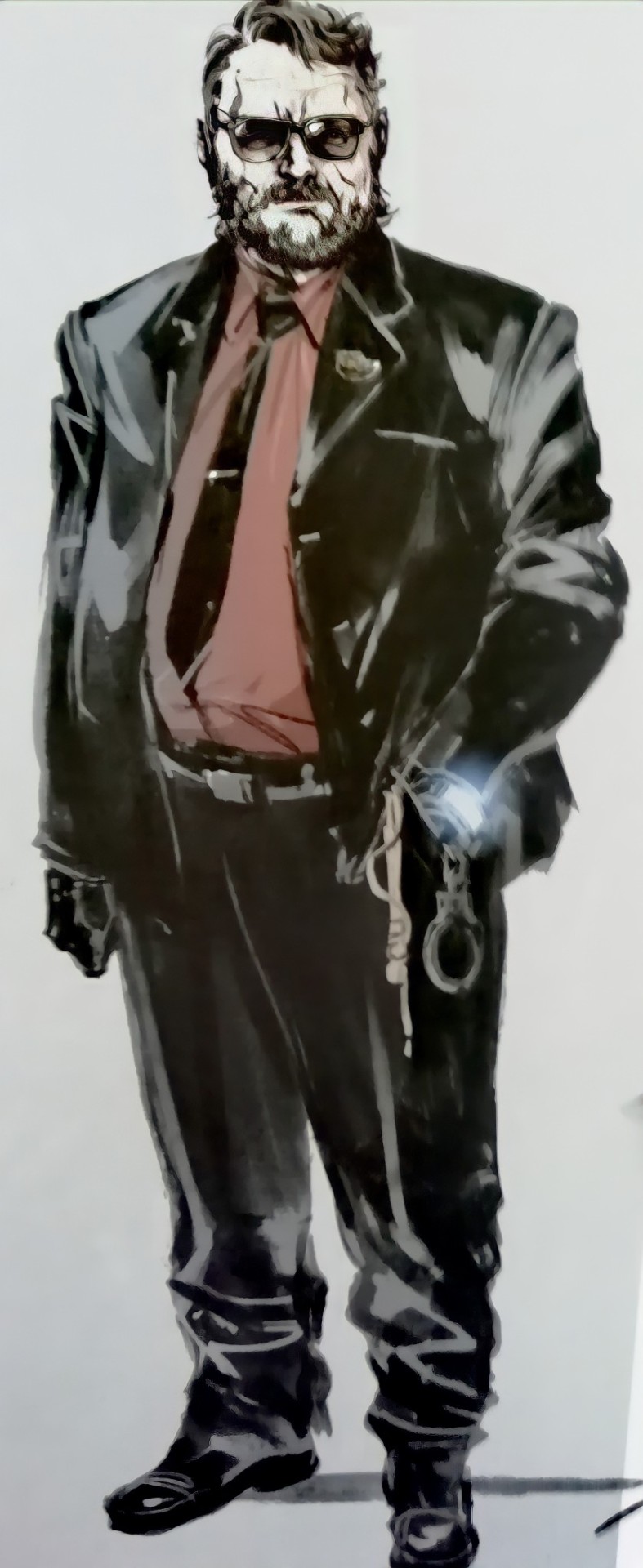
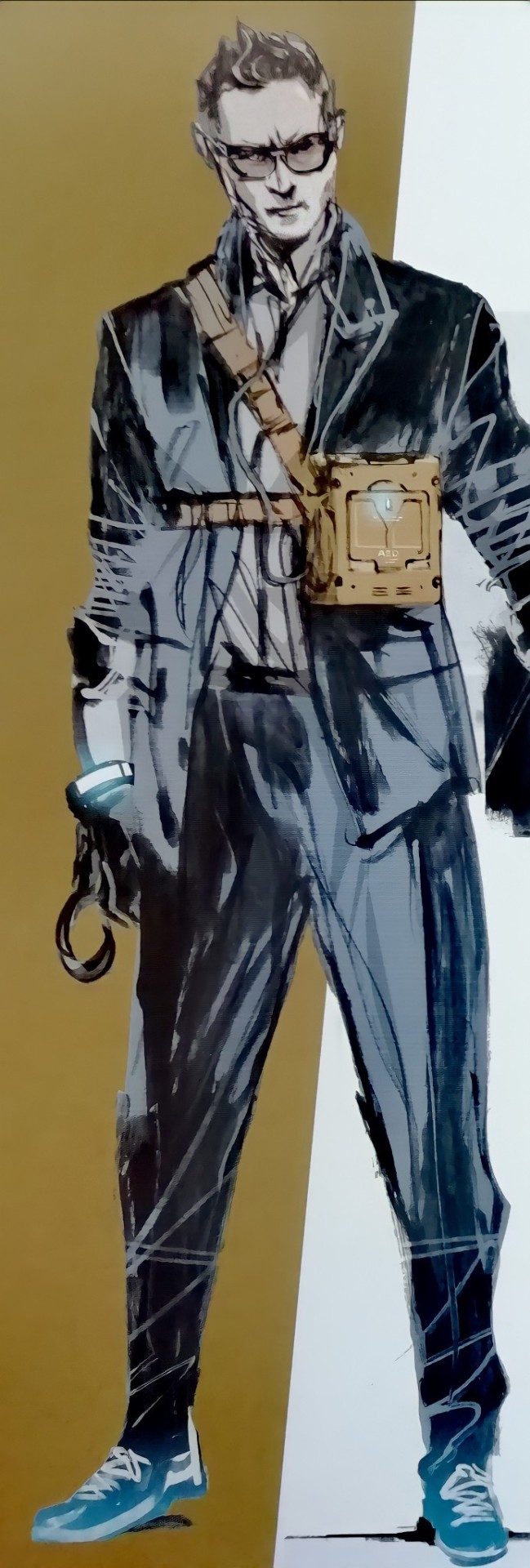

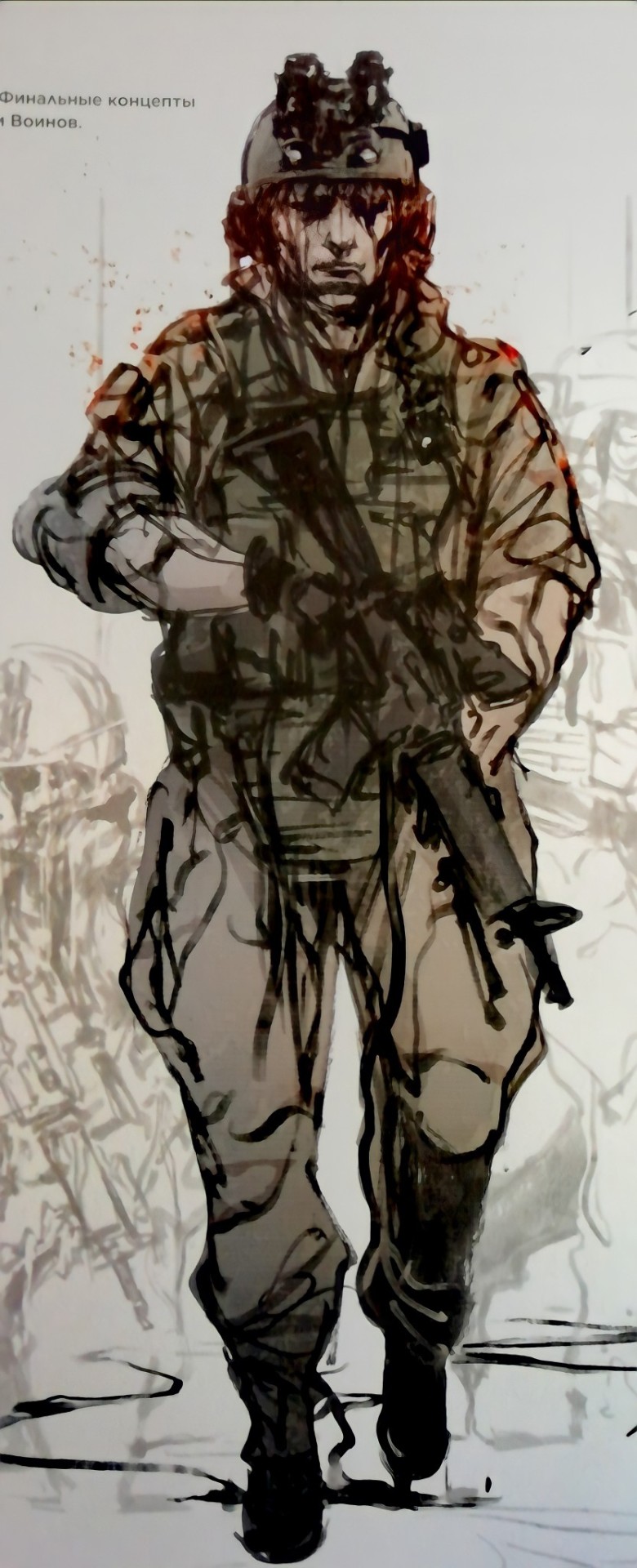
Art of DEATH STRANDING
More helpful art tips 2
* leads to a twitter thread Tutorials
Drawing a mountain with volume*
Painting the chest*
Color in Painting [Part 1][Part 2][Part 3]*
30+ lessons on drawing in perspective
Six types of fold when drawing drapery
Using references*
IMAG master classes (paid)
Planning values*
Reference
Knee Movements*
Kato Anatomy*
Making Products
A beginners guide to zines
Opening an online store [Part 1][Part2][Part 3]*
Studying Design for TV animation (on a budget)
Lighting in a room*
Windows
Bricks
Form rendering cheat sheet
Brushes
Drawmaevedraw brush set (ps)
Traditional Texture Brushes for Photoshop and Procreate (paid)
Other Resources:
Huge list of resources w/ a focus on getting into the animation industry.
Thread of study resources*
Resume guide (for an internship at nickelodeon)
Agents for Illustrators
Filing Taxes as a freelancer
3D art
Low poly horror in blender (paid)
Blending grass with the landscape (UE4)*
Ghibli Style trees in 3d (Blender)
Spritestack - a voxel editor suited for 2D artists.

How do you draw noses?
I’m not sure what specific part you’re wondering about, so here’s a run-through of my process from sketching to painting!
1) The first thing I do is simplify the nose into a few basic shapes to get a prism-like block, like so:

2) I can now easily draw the prism shape in three-dimensional space depending on the angle and rotation of the head.

3) Using the guidelines/planes I can draw a proper nose in any angle! There aren’t many tricks or shortcuts for this step, unfortunately (other than practicing lots). I recommend using references, they’re always helpful :)
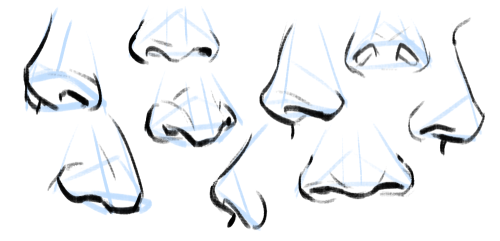
4) Really important to note: all noses vary greatly, especially from different ethnicities! A high-bridge “aristocratic” sort of nose or a ski-slope button nose might be accurate for some people, but definitely not everyone. Compare differences in size, width, a hooked or button nose tip, high or low nose bridge, and so on:

5) Then I paint! I have a skin tone tutorial here, if it helps. Take note of the lighting, skin tone, etc. Here are some things I keep in mind:
For pale skin tones, the nose sometimes has a redder colouration than the rest of the face because of increased blood flow.
The nose also usually has highlights (due to oil). These are located on the tip of the nose, the nostril groove, and where the base of the nose meets the flat area of skin around it!

Hope this helps! In the end, all stylistic choices are completely up to you. Art’s subjective, so feel free to draw any noses you want :)
Wobble Tutorial
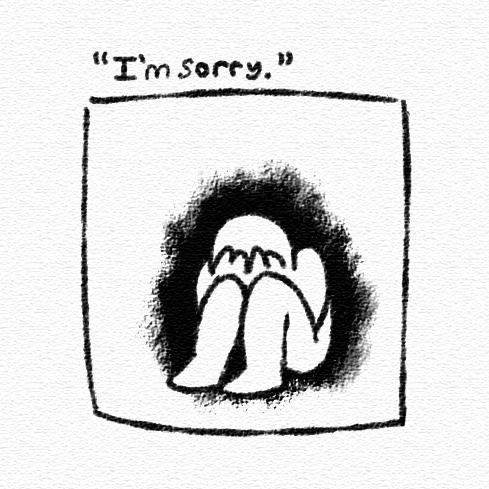
Someone asked for a tutorial on how I make my art wobble like in the above gif, so that’s what this is! It’s not very hard, all you need is a drawing program with layers, preferably Photoshop or another one with animation capabilities, but if you don’t have one, you can just export the frames individually as jpgs or pngs and compile them in another program or online gif maker. I’ll be using Photoshop in this tutorial because that’s the program I use.
Czytaj dalej
3D Pixel Art Tutorial (Blender)
so here’s another little tutorial, this time on how to make quick and easy pixelated models in blender, like these



so lets get started!
Czytaj dalej
I have two questions! First: have you ever thought of doing a tarot card suit for your characters? I think it'd work really well for them! And two: help me how do I draw legs
@gravitality
Hi!! I’ve absolutely been thinking about that, yeah, in fact I recently talked about that to my boyfriend just recently. It’ll likely happen after october! And to answer your second question! I made a thing on legs that i hope you’ll find useful!!
So. I’ve already explained basics on legs here, but I don’t think it hurts to go through some extra details to help you understand legs some more.

The very basic thing is to imagine legs as teardrops. Again, this has already been covered in said tutorial above, but I figured it’s still good to mention even the most basic thing that I know of. I still highly recommend you check it out to get in more detail and to see some other examples and practices that you do. But basically, think of legs in the shapes of teardrops, when it comes to shape. If you need a simple stick-figure to connect the legs in the first place, make sure that they bend at the knees a bit so that the legs don’t come off as stiff and unnatural.

As you can see, this method works perfectly for realistic legs as it does for stylistic ones. Remember to use these as a guideline, never to be the exact base of the legs you will be drawing. If you draw traditionally, remember not to draw these guides too hard, or they will be hard to erase/do freestyle!

But how do you actually draw out the legs without drawing them perfectly straight, as shown to the left? The trick is to add volume to them, and how you do that can be winged to your own liking. The idea is to think in curves. As no leg is perfectly straight. You may make these curves minimal if you don’t want them to be curvy, but keep in mind, still, that not even your own bones are perfectly straight, so it is highly recommended that you make them bend, at least a little.

It all depends on how you draw them as well. Say you put your legs together, as shown in this picture, what happens to the fat and muscle? Naturally, they press together, much like how thighs squish on the surface when you sit down (I’m sure most people know what I’m talking about). Make sure this shows in your art! This is very important to keep in mind, because it makes it all look more natural and believable. Try to cross your legs or stand up and sit down again for real-life examples!


The same applies for stretching your legs, more or less, except they appear to become more ‘hollow’ and slimmer. They become less soft to the touch, too, and might show. Try stretching your legs and feel where the muscles tense and where it feels ‘hollow’. This is very helpful with your art.

Many leg tutorials talk about legs without mentioning the behind. It requires a tutorial on it’s own, in all honesty, but this is the most simplest way to draw it connecting to the legs. Remember that it comes in many different shapes, and this is just a super basic guide! Two circles overlapping, while following the line and flow of the legs. Remember the muscle/fat as mentioned above!

Okay, so we got the basics of leg shapes figured out? What if you want o draw them in a certain pose, or with a certain silhouette, but perhaps do not have the reference for it? Or you want to blend your style into it? The key is to not shy away from doodling the form. Make mess, draw lightly and don’t care about the anatomy. That way you’ll get everything down without it appearing stiff. You can clean up the sketch later, always, and if you can, use a reference after you have drawn your pose, to correct your drawing.

Remember that the hips do a lot to the pose of the legs! Make sure they are in flow with your legs, so that it can look more natural. Remembers that hips ‘rotate’ with the spine.

I’ve talked about this method before when it comes to posing, and the same applies for the legs. One way to make legs appear ‘steady’ is to picture them standing in a line, and one of those legs need not to stray from the lines too much, making it steady. If you want a dynamic pose despite the steady pose, you can always have the other leg stray from the line, since it only matters that one leg is steady. This method can create good, casual poses without making them appear boring. (also notice how the teardrop shapes are used here, despite the highly stylized legs)

Do you want a highly dynamic pose, or them to appear unsteady, then skip the line entirely and make both legs aim away from it completely. As you can see, the legs appear more moving, in action, as if they’re fighting, falling, or dancing. As you can imagine, this is not a pose that one could stay steady on, suggesting that it’s taken mid-movement. More about posing and this ‘line’ method is talked about in this tutorial.
Hope this helped you, if you have any questions let me know, and if you’d like to check out all my tutorials they can be found here!









It has been literal years since I've done a tutorial.
Nobody actually asked for this, but for the first picture I did with this type of lighting I actually went and looked up some tutorials online... and couldn't really find any. So a lot of what I did in the first picture I used this type of light was me just throwing spaghetti at the wall.
I figured it out a little more in the second picture, and then I thought: y'know i would've liked to have a tutorial like this in the first place to get a good starting point for myself. So I made one. it is yours now. do what you want with it.
Hiya how do you draw arms crossed over?

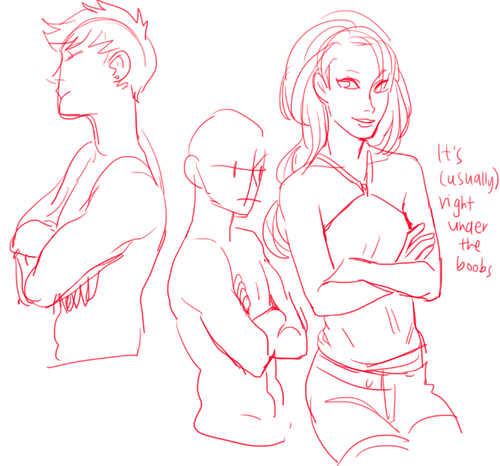
-
 dmc345-blog liked this · 5 months ago
dmc345-blog liked this · 5 months ago -
 bornvirgo liked this · 5 months ago
bornvirgo liked this · 5 months ago -
 beetle-ze-bub liked this · 6 months ago
beetle-ze-bub liked this · 6 months ago -
 rumaddict liked this · 1 year ago
rumaddict liked this · 1 year ago -
 fandiee liked this · 1 year ago
fandiee liked this · 1 year ago -
 myartresources69 reblogged this · 1 year ago
myartresources69 reblogged this · 1 year ago -
 createatorin3d liked this · 1 year ago
createatorin3d liked this · 1 year ago -
 automaticnutmilkmaker liked this · 1 year ago
automaticnutmilkmaker liked this · 1 year ago -
 catssized liked this · 1 year ago
catssized liked this · 1 year ago -
 many-fandoms-lover liked this · 1 year ago
many-fandoms-lover liked this · 1 year ago -
 cautionworks liked this · 1 year ago
cautionworks liked this · 1 year ago -
 cautionworks reblogged this · 1 year ago
cautionworks reblogged this · 1 year ago -
 pinkabby2 liked this · 1 year ago
pinkabby2 liked this · 1 year ago -
 littlestaryprince reblogged this · 1 year ago
littlestaryprince reblogged this · 1 year ago -
 stinkysoks reblogged this · 1 year ago
stinkysoks reblogged this · 1 year ago -
 wolfskullscreates liked this · 1 year ago
wolfskullscreates liked this · 1 year ago -
 ashenmooons liked this · 1 year ago
ashenmooons liked this · 1 year ago -
 trippy-xylophone reblogged this · 2 years ago
trippy-xylophone reblogged this · 2 years ago -
 solar-edens reblogged this · 2 years ago
solar-edens reblogged this · 2 years ago -
 pathostozenith liked this · 2 years ago
pathostozenith liked this · 2 years ago -
 touchstarvedforbuckybarnes reblogged this · 2 years ago
touchstarvedforbuckybarnes reblogged this · 2 years ago -
 touchstarvedforbuckybarnes liked this · 2 years ago
touchstarvedforbuckybarnes liked this · 2 years ago -
 samoncrab liked this · 2 years ago
samoncrab liked this · 2 years ago -
 artistrianna reblogged this · 2 years ago
artistrianna reblogged this · 2 years ago -
 catloaf322 liked this · 2 years ago
catloaf322 liked this · 2 years ago -
 superstar-art reblogged this · 2 years ago
superstar-art reblogged this · 2 years ago -
 lemaquillage liked this · 2 years ago
lemaquillage liked this · 2 years ago -
 songthursh liked this · 2 years ago
songthursh liked this · 2 years ago -
 lucien-lachance liked this · 2 years ago
lucien-lachance liked this · 2 years ago -
 patchanyra liked this · 2 years ago
patchanyra liked this · 2 years ago -
 spacefloosie liked this · 2 years ago
spacefloosie liked this · 2 years ago -
 ratsfication liked this · 2 years ago
ratsfication liked this · 2 years ago -
 ghostsartcloset reblogged this · 2 years ago
ghostsartcloset reblogged this · 2 years ago -
 toxic-soundwaves liked this · 2 years ago
toxic-soundwaves liked this · 2 years ago -
 honestlyjustchaos reblogged this · 2 years ago
honestlyjustchaos reblogged this · 2 years ago -
 ryesillustrates reblogged this · 2 years ago
ryesillustrates reblogged this · 2 years ago -
 banana-with-a-bow-tie liked this · 2 years ago
banana-with-a-bow-tie liked this · 2 years ago -
 celestial-citrus-archive reblogged this · 2 years ago
celestial-citrus-archive reblogged this · 2 years ago -
 gypsumcoyote liked this · 2 years ago
gypsumcoyote liked this · 2 years ago -
 yesxan liked this · 2 years ago
yesxan liked this · 2 years ago -
 sakuralady21 liked this · 2 years ago
sakuralady21 liked this · 2 years ago

Sylwester | i will mostly post sketches, because i'm too lazy to end them
196 posts